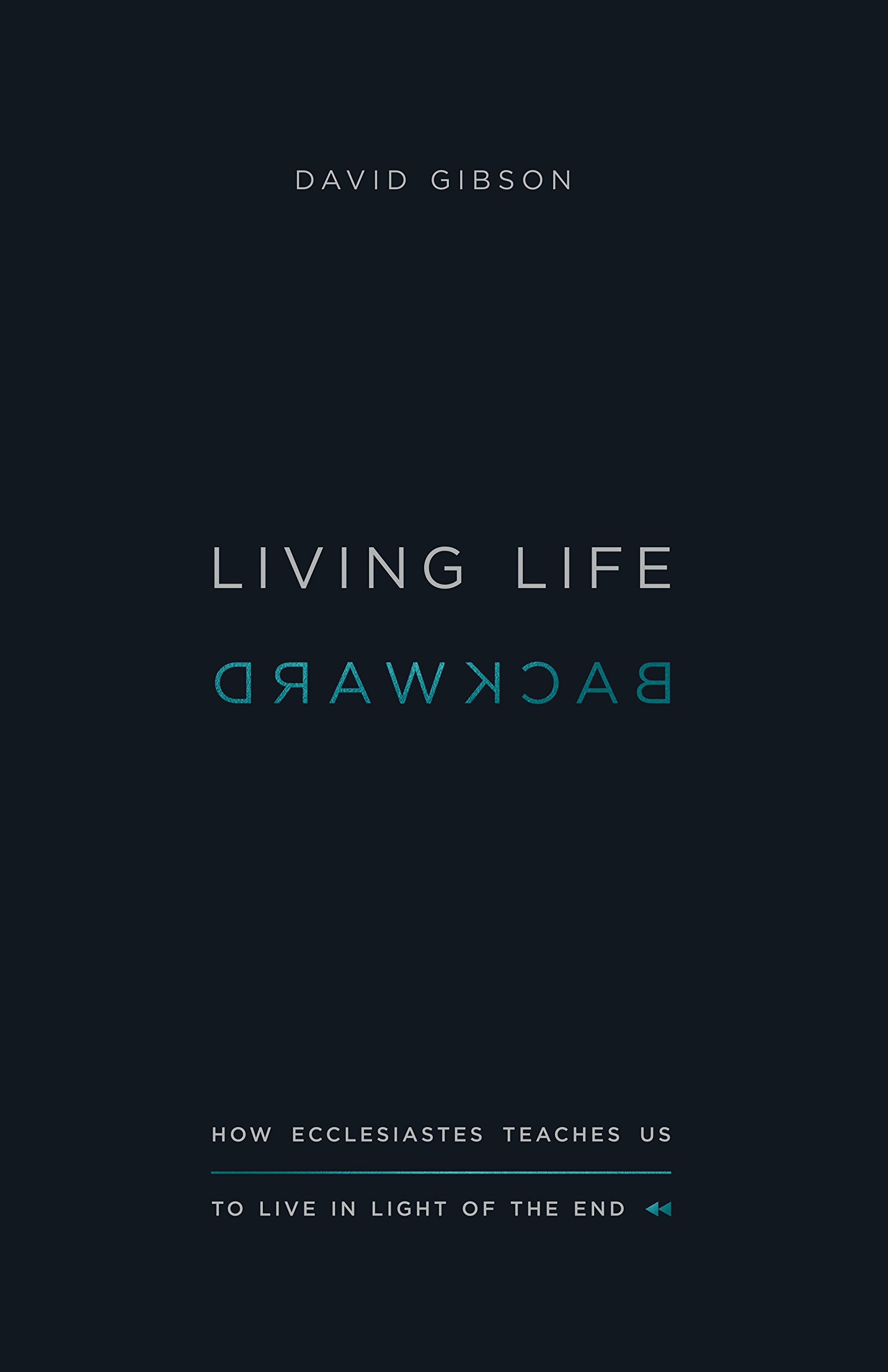A Book Review from Books At a Glance
One day we are all going to die. Not only are we going to die, but all the time and effort invested in our worldly pursuits will slip through our fingers and elude our grasp. This truth is the starting point of David Gibson’s book, Living life Backwards: How Ecclesiastes Teaches Us to Live in Light of the End. Gibson methodically and expertly walks us through the major themes and arguments of the text of Ecclesiastes with the ultimate goal of answering one question: how are we to live our lives in light of the knowledge that our earthly pursuits are futile and life is momentary? Gibson is the Minister of Trinity Church in Aberdeen Scotland and has published a number of articles and books including Reading the Decree: Exegesis, Election and Christology in Calvin and Barth (2012) and Destiny: Learning to Live by Preparing to Die (2016).
Gibson begins where the preacher of Ecclesiastes does; that we are all going to die and our worldly pursuits will never satisfy. This is stated by the preacher of Ecclesiastes in chapter one verse two when he says: “vanity of vanities, all is vanity,” a translation of the Hebrew word hebel. Gibson spends his first 2 chapters fleshing out this concept, asking, “What is vanity?” and “What will become of all our worldly efforts?” Gibson compares the frailty of human endeavors to grasping at smoke. You plan, you study, you work, you execute, and yet when you are about to grasp it, it drifts between your fingers and is lost.
In chapter 3, Gibson begins to explore how life looks when lived with the understanding that all is vanity. Our natural reaction to this would be bleak and depressing, but the preacher suggests it should lead to hope. He suggests that a proper understand that life is fleeting should lead to knowledge that “only what God does will endure.” God and his word is the foundation that will last, unlike our own efforts. This is the main thrust and as the book advances Gibson expounds on the preacher’s applications of this understanding.
In chapter 4, Gibson addresses how one lives in the context of “we” and not “I.” A “we” focused life does not create a less fleeting life but does produces a certain peace that the “I” centered life cannot. We begin to see the apparent paradox of not holding onto this life too tightly, which in reality allows us to experience the most out of it. In chapter 5, he gets even more specific by teaching us to open our ears to the solid foundation of God’s word. Gibson emphasizes the need for believers to listen to God’s word by focusing on the preacher’s re-iteration of Moses’ “Hear, O Israel”. There is wisdom in realizing life is fleeting and intently listening to what God has spoken, however, chapter 6 offers a warning: while the wisdom discussed in chapter 5 is true, we need to be careful about putting our trust in our wisdom instead of who the wisdom is about. There are limitations to our wisdom and our wisdom by itself is not profitable.
In chapter 7, Gibson argues that life can truly be enjoyed because God is in control of all things. Chapter 8 reminds us that while there are some things we do know, there are many things we do not. This helps bring clarity on where we are gaining our perspective from in life. Gibson states “Ecclesiastes urges us to think about life under the sun from the perspective of life above the sun.” Chapter 9 concerns lessons from old age. Time and its traveling companion age; teach us to be urgent in our rejoicing and calm in our remembering. Finally, Gibson concludes in chapter 10 by summarizing what all of this teaching should produce in us. He identifies four things: pleasure, pain, perspective, and preparation. How do we engage life pleasures and pains? What type of preparation does this produce in us? Our perspective informs the answers to the other questions. Gibson closes by making a connection between Ecclesiastes and Philippians. “While Ecclesiastes tells us there is no gain to be had under the sun, the apostle Paul reminds us: “For me to live is Christ, and to die is gain” (Phil. 1:21)”. When we live life backwards in light of life’s vanity we gain, and when we die, we gain. This is the wisdom of God.
Gibson does an excellent job throughout this book of highlighting the themes of Ecclesiastes, in particular, the common biblical theme that God’s wisdom seems to be a reversal of human wisdom. The wisdom of man ignores his mortality and pursues the passions and pleasures of life. God’s wisdom tells us to live life in light of eternity and under his sovereign control. Gibson balances detailed, accurate, exegesis with a clear, organized writing style making the book accessible for any level of reader. Living Life Backwards would be an excellent book to be worked through in a small group setting, especially in connection with pulpit sermon series on Ecclesiastes from the pulpit. I personally found the book helpful, insightful, and encouraging.
Brian Whittington is a physical therapist and an elder at Christ the King Church in Kenosha, WI.
